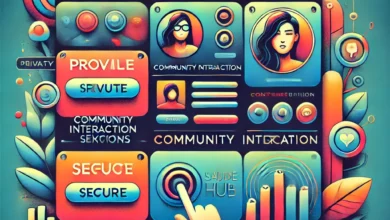The Evolution of Taylor Swift: From Country Darling to "The Bolter"
The Evolution of Taylor Swift: From Country Darling to "The Bolter"

The Bolter In the expansive world of pop culture, few names are as recognizable or influential as Taylor Swift. Over the years, Swift has gone from a sweet country girl with a guitar to one of the biggest pop stars on the planet, constantly reinventing herself and her sound. With each new album, she brings something different to the table, and her personal life—often the subject of public fascination—tends to influence her music. One nickname that has surfaced in some circles is “The Bolter,” an allusion to her tendency to walk away from relationships and reinvent herself with each chapter. But what does “The Bolter” mean in the context of Taylor Swift’s life and career? And is this label a fair representation of her journey, both musically and personally?
Who is “The Bolter”?
The term “bolter” originated from Nancy Mitford’s 1945 novel The Pursuit of Love, where the character of “The Bolter” refers to someone—often a woman—who frequently leaves relationships or situations, seeking new experiences and often leaving behind chaos in her wake. Historically, this term carried a negative connotation, implying irresponsibility or a lack of commitment. However, as cultural attitudes toward independence, especially for women, have evolved, the label can be viewed in a new light.
In the case of Taylor Swift, calling her “The Bolter” could stem from her numerous high-profile relationships and breakups. Swift has had romantic entanglements with a variety of famous men, including Joe Jonas, Harry Styles, Calvin Harris, Tom Hiddleston, and more recently, her long-term relationship with actor Joe Alwyn, which ended in 2023. Many of these relationships—and their subsequent endings—have served as inspiration for her songwriting, making Swift one of the most autobiographical artists in pop music today.
While some critics and gossip columnists may use “The Bolter” in a pejorative sense, framing her as someone who cannot settle down, others might argue that Swift’s ability to move on from relationships shows a sense of empowerment and self-worth. In today’s society, where women are increasingly encouraged to prioritize their own needs and happiness, Swift’s pattern of moving forward could be seen not as a negative trait but as an assertion of independence.
Taylor Swift’s Relationship with Change
If there’s one constant in Taylor Swift’s career, it’s her embrace of change. Swift has always been willing to evolve, whether musically or personally, and it’s this ability to transform that has kept her relevant for over a decade. Her early years as a country singer-songwriter were marked by heartfelt ballads and narrative-driven storytelling, winning her a loyal fanbase.
However, as she transitioned from her teenage years into her twenties, Swift ventured into the pop music scene, starting with her 2014 album 1989, which was a major departure from her previous work. Songs like “Shake It Off” and “Blank Space” catapulted her into a new stratosphere of fame, and Swift successfully positioned herself as a pop icon.
The key to Swift’s success lies in her willingness to move forward, never staying stuck in one genre or sound for too long. In this way, “The Bolter” label could be applied not just to her personal life but to her career as well. Swift “bolts” from one musical era to the next with ease, constantly reinventing herself and keeping fans on their toes.
From the country darling of Fearless to the indie-folk experimentation of Folklore and Evermore, Swift’s catalog showcases her chameleonic nature. Just when listeners think they’ve figured her out, she surprises them again. In an industry where many artists struggle to maintain longevity, Swift’s ability to evolve is perhaps her greatest strength.
Autonomy in Relationships and Career
Taylor Swift’s public image has often been a reflection of her personal growth. Early in her career, she was often criticized for being too open about her relationships in her music. Songs like “Dear John” and “We Are Never Ever Getting Back Together” gave listeners insight into her romantic experiences, but they also opened Swift up to public scrutiny, with critics labeling her a serial dater or accusing her of using her relationships for career gain.
However, in more recent years, Swift has reclaimed the narrative surrounding her love life. In the songs of Folklore and Evermore, she dives deeper into themes of love, loss, and identity, but this time with a more mature perspective. Instead of focusing solely on her personal experiences, Swift has begun to tell fictionalized stories or offer more abstract reflections on relationships, showing that she can navigate both the personal and the universal.
In this sense, Swift is the epitome of a modern woman who knows what she wants and isn’t afraid to walk away from something—or someone—that doesn’t serve her. She is in control of her narrative, both musically and personally, and this autonomy is a key aspect of why she has been labeled “The Bolter.” Rather than staying in situations for the sake of public approval or traditional expectations, Swift moves on when it feels right, even if it means facing criticism.
The Empowerment Behind “The Bolter”
Rather than viewing the label “The Bolter” as an insult, Swift’s fans might see it as a badge of honor. In a world that often pressures women to conform to certain roles—whether in relationships, careers, or public personas—Swift’s ability to break away and follow her own path is a sign of strength.
She has bolted from bad relationships, outdated expectations, and even the music industry’s norms. Her decision to re-record her early albums in response to losing control of her masters was another bold move that signified her commitment to owning her artistry. Swift is not just bolting away from relationships but also from systems that attempt to confine her creativity and independence.
Conclusion
Taylor Swift’s journey as “The Bolter” can be seen as both a personal and professional narrative of empowerment and self-determination. Whether she’s leaving a relationship that no longer works for her or moving into a new musical genre, Swift’s ability to embrace change has been key to her success. Instead of seeing her constant evolution as a flaw, perhaps it’s time to view Swift as a figure who exemplifies the modern woman—unafraid to leave behind what no longer serves her and boldly stepping into new chapters, both in her life and in her art.




